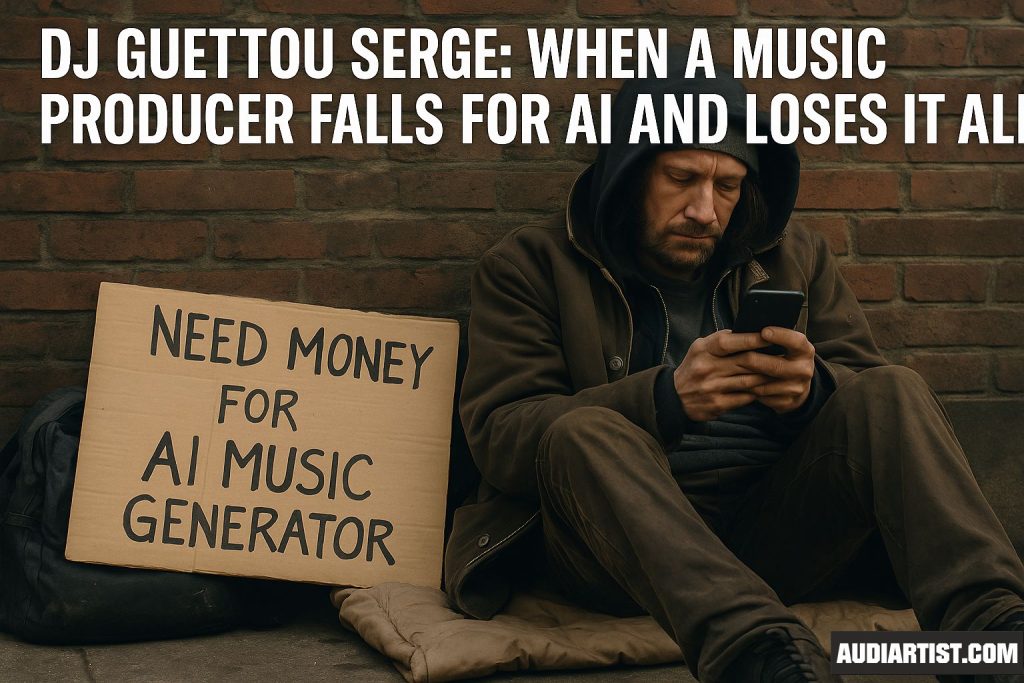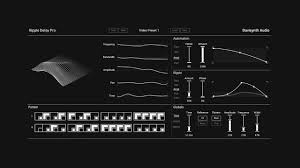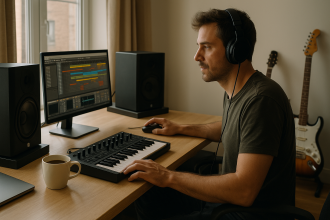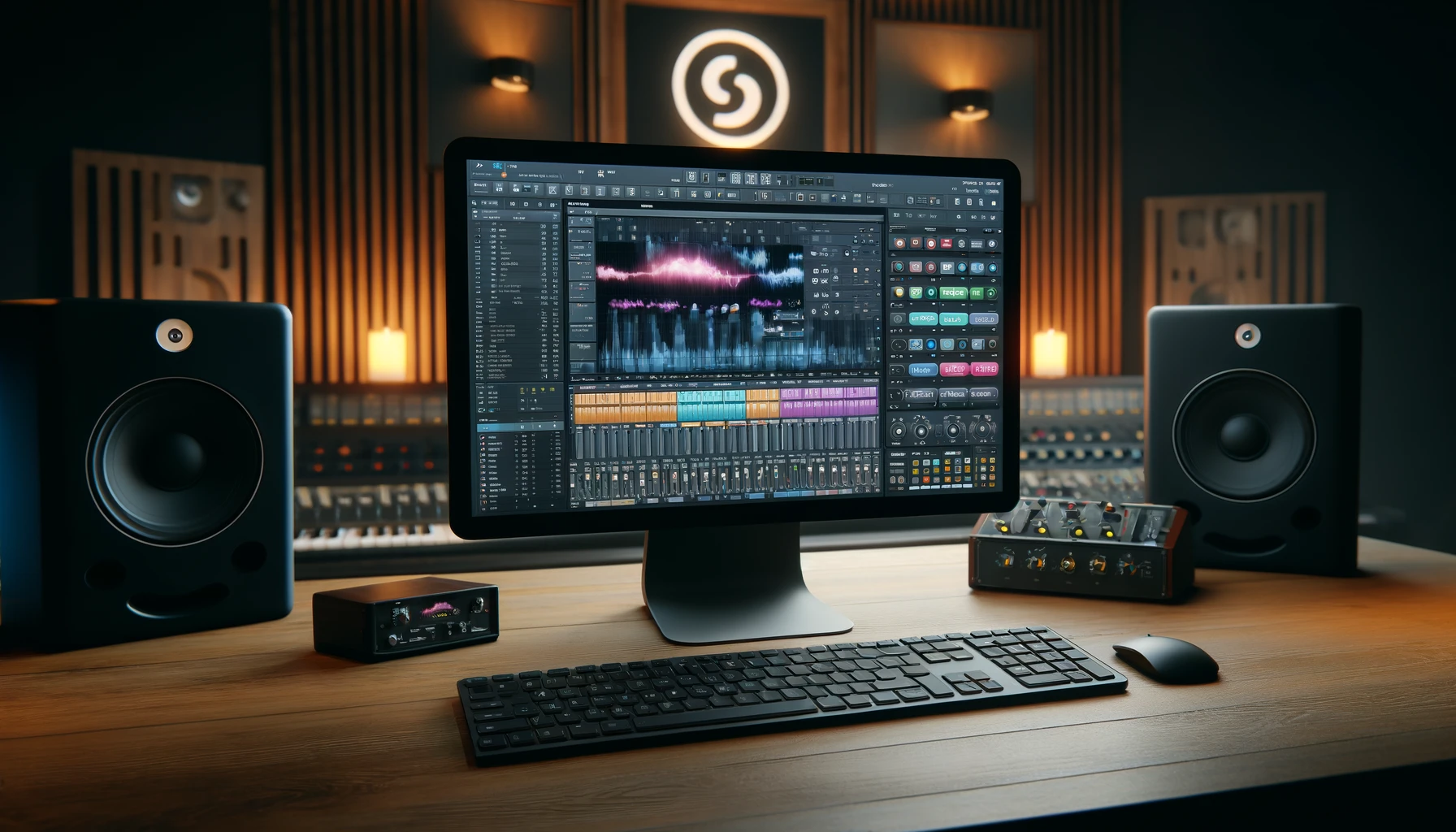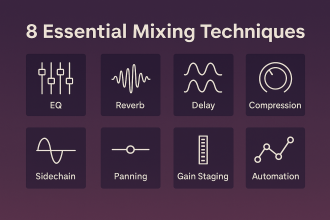The Fall of a Bedroom Producer Addicted to AI
From Passion to Frustration
Once upon a time, DJ Guettou Serge was like many aspiring producers. A dreamer. A worker. A night owl in front of his DAW. He spent years learning the craft: equalizing kicks until dawn, layering pads until his ears bled, and watching endless YouTube tutorials promising “the secret to a hit track.”
He wasn’t lazy. He wasn’t talentless. He was simply… invisible. After releasing dozens of tracks on SoundCloud and Spotify, the reality was cruel: a handful of plays, a few polite comments, and no sign of the breakthrough he longed for. Meanwhile, his idols filled stadiums, and TikTok teenagers went viral overnight with beats made in their bedrooms in two minutes.
The frustration grew. The fire that once fueled him started to fade.
The Encounter with AI
And then came the turning point. One night, while scrolling through forums, Serge discovered an AI music generator. Out of curiosity, he typed: “Make me a house track like David Guetta.”
Seconds later, the machine delivered a track that could pass for radio material. In thirty seconds, Serge had something that had taken him years to try to achieve.
It was as if someone had handed him the holy grail of music production. Why struggle for hours when a line of text could give him polished results instantly?
At first, he laughed. Then he tried again. And again. Until laughing wasn’t part of it anymore.
The Addiction Begins
Serge quickly fell into the trap. The AI generator became his daily drug. What started with one or two tracks soon exploded into hundreds. Within months, his hard drive was overflowing with thousands of AI-generated songs: techno, trap, afrobeat, lo-fi, ambient… whatever he asked for, the machine delivered.
Instead of working on his own craft, Serge simply clicked generate. The sense of achievement he once felt from finishing a track was replaced by the dopamine rush of mass production.
He uploaded them all—under dozens of different aliases: “Electro Pulse,” “Deep Sleep Atmos,” “Urban Flow Master.” His dream wasn’t to connect with listeners anymore. It was to trick algorithms and pile up streams.
The Collapse of a Producer
But the music wasn’t fooling anyone. Platforms like Deezer slapped labels on his work: “AI-generated content.” Spotify buried his tracks in the abyss of forgotten uploads. Listeners ignored him.
His friends mocked him: “Serge doesn’t produce anymore—he just clicks buttons.”
His family worried about him: long nights, red eyes, isolation.
Even his own creativity abandoned him—he no longer remembered what it felt like to actually make music.
The worst part? For all his obsession, his “biggest success” barely crossed 1,000 streams—and most of them came from bots on shady playlists. Thousands of tracks, and nothing to show for it.
The Tragic Joke of AI Slop
DJ Guettou Serge’s story is almost funny—until it isn’t. It shows what happens when passion is replaced by shortcuts, when music becomes an assembly line instead of an art form.
Because AI can generate sound, but it can’t generate soul. It can spit out tracks, but it can’t create goosebumps. The result? What critics now call “AI slop”: fast food for the ears, soulless content that vanishes as quickly as it’s consumed.
It’s music as forgettable as reheated leftovers. Or, to put it bluntly: like a kebab without sauce.
The Lesson of DJ Guettou Serge
The fall of DJ Guettou Serge is a warning dressed as a joke. Yes, AI can be a tool. Yes, it can help. But surrendering to it entirely means losing the very thing that makes music matter: authenticity.
Listeners don’t remember the producers who flood platforms with thousands of lifeless tracks. They remember the ones who create melodies that touch them, mistakes that turn into magic, and songs that feel human.
Conclusion
DJ Guettou Serge wanted success. What he got instead was addiction, ridicule, and a library of tracks that nobody cared about.
His story should remind every artist: the easy road leads nowhere. Music is built on sweat, patience, and heart—not on shortcuts.
Because in the end, no one will write history about the guy who uploaded 3,000 AI songs. But they will remember the one who wrote just one song that made people feel alive.
![]()

